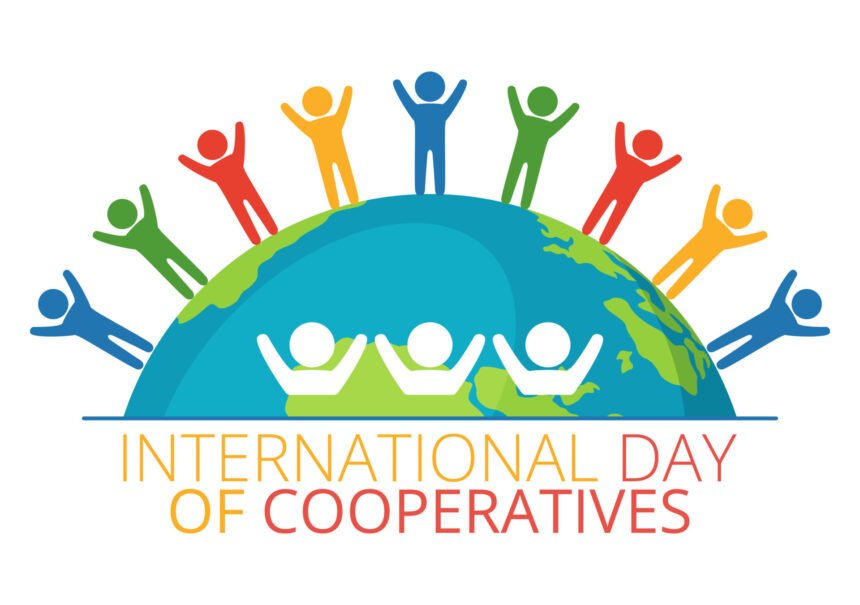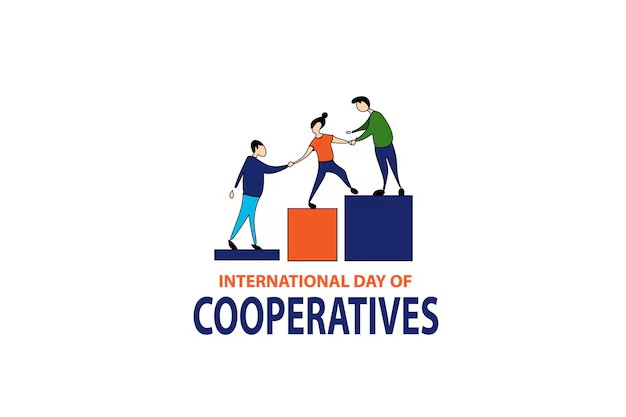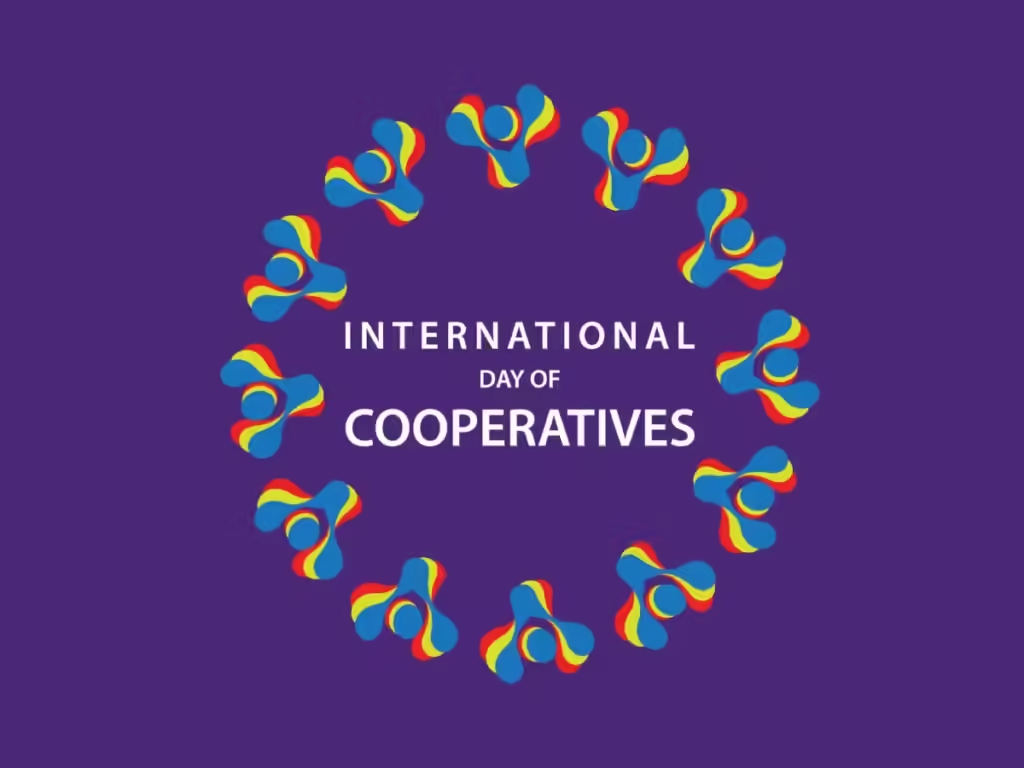Co-operatives are significant as they give individuals a chance to come together and effectively improve their lives while contributing to the economic, cultural, social, and political advancement of their community and nation. To commemorate the profound strength of cooperation in society, the United Nations designated the International Day of Cooperatives, celebrated worldwide. This year, the International Day of Cooperatives will be celebrate on July 6. Marking the 102nd International Cooperative Day and the 30th International Day of Cooperatives recognized by the United Nations.
The celebration brings individuals, organizations, and communities from all corners of the world together to honor the noteworthy impact of cooperative enterprises. Together, the world pays tribute to the spirit of cooperation that has shaped communities and transformed countless lives on a global scale. This year, cooperatives around the world will celebrate with the theme “Cooperatives Building a Better Future for All,” underscoring their pivotal role in creating sustainable and equitable societies.
The History of the International Day of Cooperatives
The history of the International Day of Cooperatives dates back to the early 20th century when the cooperative movement gained traction worldwide. The International Cooperative Alliance (ICA) established the first International Cooperative Day in 1923 to honor the ideals and principles of cooperation. Officially declared by the United Nations General Assembly. The International Day of Cooperatives is observed annually on the first Saturday of July. Marking the centenary of the ICA’s establishment.
The cooperative movement’s roots extend even further back to 1844 when the Rochdale Pioneers founded the modern cooperative movement in Lancashire, England. Moreover, They aimed to provide an affordable alternative to poor-quality and adulterated food and provisions, using any surplus to benefit the community. Since then, the cooperative movement has flourished, extending across the globe and encompassing all sectors of the economy.
Significance of the International Day of Cooperatives
Every year, various events and seminars are organize to celebrate the transformative power of cooperation in our societies. Eventually, The day raises awareness about cooperatives’ crucial role in promoting equality, nurturing economic and social development, creating sustainable livelihoods, and empowering marginalized communities. Cooperatives are associations of persons united voluntarily to meet their common economic, social, and cultural needs.
Cooperatives are based on values of self-help, self-responsibility, democracy, equality, equity, and solidarity. Members of cooperatives use their services and are willing to accept the responsibilities of membership without gender, social, racial, political, or religious discrimination. Moreover, These values are instrumental in fostering inclusive and sustainable growth, making cooperatives unique agents of social change.
The 2024 Theme: Cooperatives Building a Better Future for All
The 2024 theme, “Cooperatives Building a Better Future for All,” aligns with the upcoming UN Summit of the Future, focusing on “Multilateral solutions for a better tomorrow.” Cooperatives will showcase their current and historical contributions to sustainability, efforts to implement the Sustainable Development Goals (SDGs) by 2030, high standards for inclusive and sustainable growth, and role as environmental stewards and climate change fighters.
The theme highlights how cooperatives set an example for peace and stability through their democratic structure, bringing people from diverse backgrounds together on equal terms, fostering understanding, and respect. Their shared ownership model promotes economic equality and fair wealth distribution, contrasting traditional business models that often lead to wealth concentration.
Cooperatives’ Role in Addressing Global Challenges
Cooperatives are uniquely positioned to address major global challenges. Including poverty reduction, employment, and social integration. As human-centered businesses that exist to meet their members’ needs, cooperatives create employment opportunities by offering direct wage employment to people, self-employment to members, and indirect employment through spillover of their income-generating activities.
In the realm of gender equality, the cooperative model is particularly effective. Eventually, Cooperatives advance women’s economic participation by increasing access to employment and work, enabling economic democracy and agency, and boosting leadership and management experience. Women who earn their living in the informal economy, such as home-based workers, domestic workers, and waste pickers, often come together through the cooperative model to improve their livelihoods, enhance their access to goods, markets, and services, and engage in advocacy efforts through their collective voice. In this way, cooperatives provide pathways for women in the informal economy to transition to the formal economy, stabilizing their incomes and improving their working conditions.
The Cooperative Movement in India
In India, the cooperative movement has a rich history dating back to the last quarter of the 19th century when efforts were made to provide relief to farmers from the clutches of moneylenders. The cooperative movement was introduced in India as a state policy with the enactment of the Cooperative Societies Act, 1904. Since then, the movement has seen various stages of development, significantly expanding in the post-independence era under planned economic development initiatives.
Former Prime Minister Pandit Jawahar Lal Nehru was a great admirer of cooperatives and envisioned them as a means to foster economic development. Moreover, Cooperatives in India have grown substantially, covering a wide array of sectors including agriculture, dairy, forestry, fisheries, credit and banking, housing, and construction. With around 8,02,639 cooperative societies in the country, cooperatives play a crucial role in ensuring sustainable livelihoods and income for people, particularly in rural areas.
The Ministry of Cooperation, established on July 6, 2021, has undertaken numerous initiatives to strengthen and deepen the cooperative movement from primary to apex-level cooperatives. Furthermore, Today, the Indian cooperative system is one of the largest in the world, serving as a cornerstone of the rural economy and empowering farmers, women, youth, and marginalized communities.
Global Impact and Future Prospects
The cooperative movement’s global impact is profound, demonstrating how cooperative enterprises can bring economic and social benefits to people worldwide. Cooperatives provide an alternative model of globalization based on shared values, reduced inequality, and sustainable practices. They operate on principles of democratic governance, local autonomy, international integration, self-help, and holistic objectives, addressing economic, social, and environmental issues simultaneously.
As the world looks towards a sustainable future, the role of cooperatives becomes increasingly important. The 2023 UN Secretary-General Report on Cooperatives in Social Development recognized cooperatives’ role in promoting economic and social development for all, including marginalized groups. Furthermore, the UN’s declaration of 2025 as the International Year of Cooperatives offers additional opportunities to showcase the cooperative model’s benefits.
Conclusion
The International Day of Cooperatives is more than a celebration; it is a recognition of the cooperative movement’s enduring legacy and its vital role in building a better future for all. As cooperatives worldwide celebrate this day, they continue to inspire and demonstrate the power of collective action and democratic governance in creating equitable, inclusive, and sustainable communities.













